In this beginner's guide to wild camping essentials, I go over the basic kit needed for your first free night under the stars. Includes practical advice, gear suggestions and more!
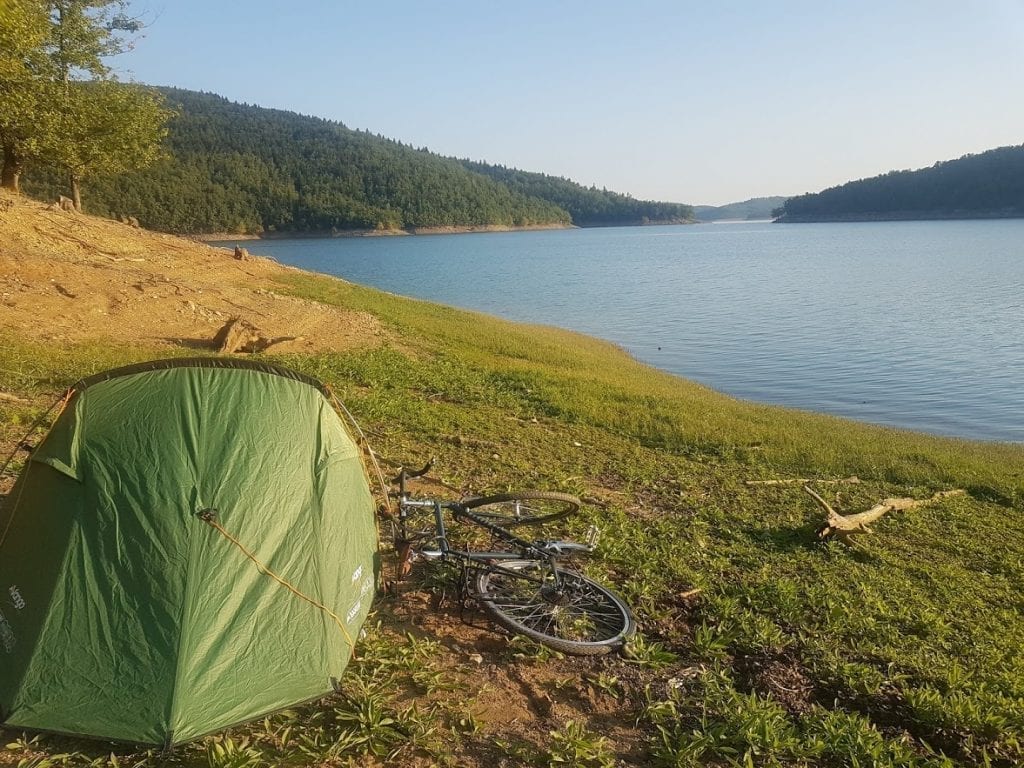
Camping in the Wild
Now that staycations are all the rage and campsites are fuller than ever, there's never been a better time to go wild camping!
After all, who wants to pay over the odds for staying at a crowded campsite, when you can get a free place to stay out in nature?
I've wild camped in some fantastic places around the world – at the top of the Andes, in the deserts of Sudan, and by lakes in Greece.
Take it from me, nothing quite beats that perfect camp-spot out in the wild where you can enjoy a good sunset and see the moon climb up over the horizon.
Related: Camp Quotes
Wild Camping Kit List
This guide is designed to outlay the essentials for wild camping you may need for your first free night sleeping under the stars. Once you've done it a couple of times, you'll no doubt end up refining your kit to suit your personal needs.
When you do, come back to this guide and leave a comment if you think it might help other readers planning their own free camping outings!
For more tips on camping in the wild, such as picking a spot, and other FAQ, check out my guide here on How to wild camp.

Wild Camping Essentials
I've divided the wild camping essentials that most people need into different sections below. I've also included wild camping gear suggestions which would be useful for hikers, bikers, and anyone that simply wants to pack a bag and go!
Not all the categories may apply to you. For example, not everyone will want to take a water filter. Some people may not even find the need for a tent, preferring the idea of sleeping under the night sky in just a sleeping bag.
I've also not included obvious things like hiking gear, jackets, and other clothing. It is something you'll need to take into account when choosing how to carry the gear later on though.
Related: How to Stay Comfortable and Warm Sleeping Outdoors
Shelter
This is one of the most essential things for camping you are going to need to think about. The type of shelter you take with you will depend on your personal circumstances, but it is most likely going to be a tent. Bivvy bags, hammocks and tarps are also options.
The best tent for wild camping will be one with a low profile so it doesn't stick out by being too big. A free standing tent would also have advantages, as would a darker colour such as green so it blends into the background more.
Get used to putting the tent up before heading out. The last thing you want to be doing is working out for the first time how a tent goes up when you're in the dark in the middle of nowhere!
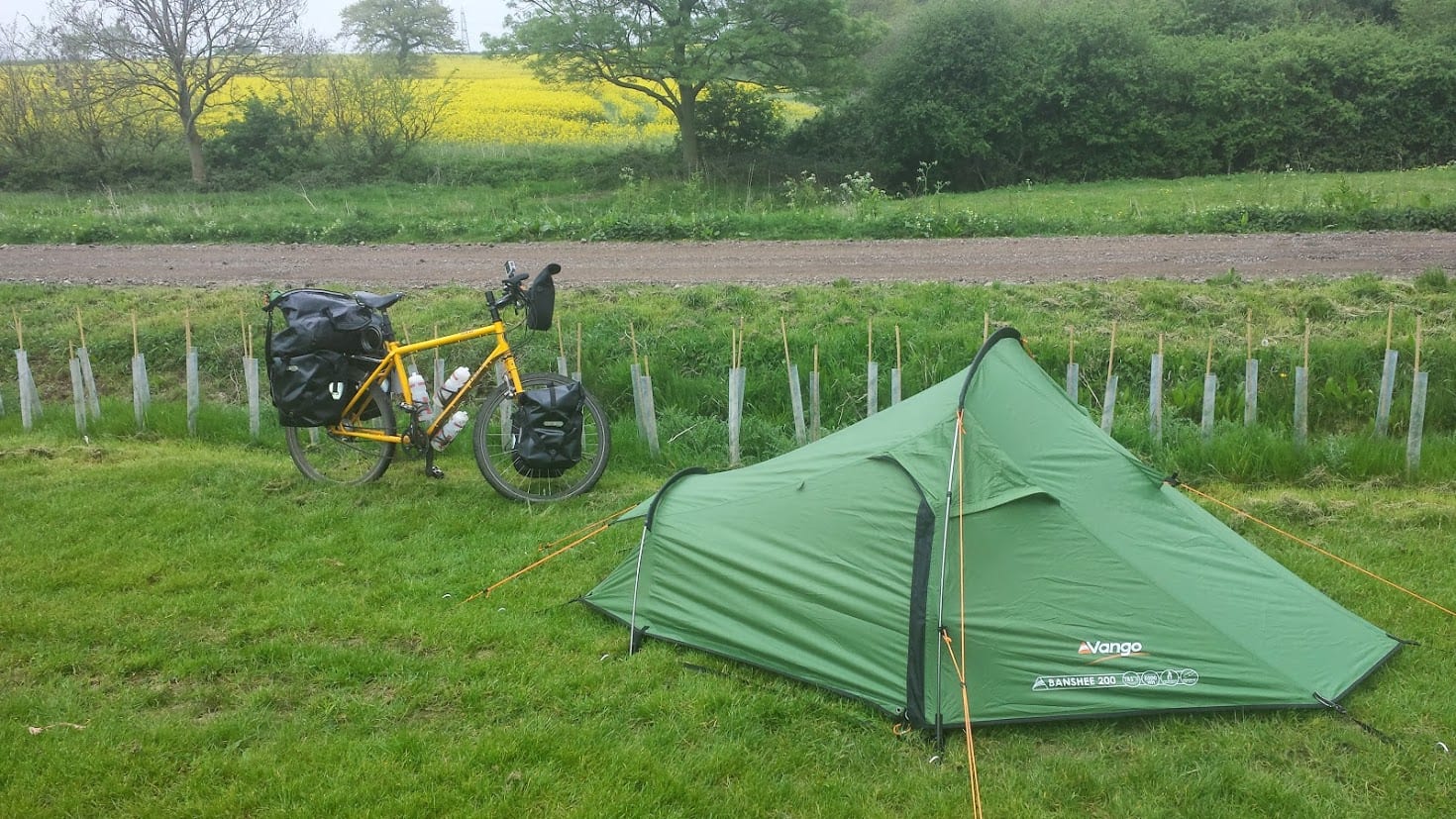
Best wild camping tent suggestions: I'm from the UK and like the Vango range of tents. Vaude also have good tents that would work well for wild camping.
Sleeping Bag
Even on the warmest of nights, a sleeping bag is essential for camping, whether in the wild or on an official site. You'll need to pick a sleeping bag suitable for the season, and preferably one that is not too heavy.
If you tend to spend nights in the great outdoors in all seasons, you might accumulate 2 or 3 sleeping bags so you can choose the one most suitable for your outing. Further reading here: How to choose the right sleeping bag
My pro tip here is to also use a sleeping bag liner, especially when camping for more than a couple of nights. This way, you'll only really need to wash the liner when you've finished camping, and it will preserve the lifespan of the bag better.
Sleeping Mat
A sleeping mat is another essential item of gear for camping wild you'll want to include. It provides a layer between your body and the ground which provides thermal insulation, and makes hard ground more comfortable to sleep on.
Most people prefer the inflatable style of camping mat, with Therma-a-rest being the leading brand for outdoor lovers. I'm not such a huge fan of inflatable mats, as sooner or later they fail – normally when I'm in a country where no replacements can be found!
As I travel by bicycle, I don't need to be so concerned about saving space, and have found that a good closed-cell foam pad such as the Therm-a-rest Original Z Lite does the job just as well.
Water
If you've spent the day hiking or cycling, water will be something of a priority. How you carry this will depend on your outdoor activity. Some people like eater bottles whereas others my take a water bladder.
I tend to make sure I always have at least 3 litres of water for overnight camping. This gives me enough to drink, cook with, have a quick sponge bath, and also leaves me a litre to drink the following morning.
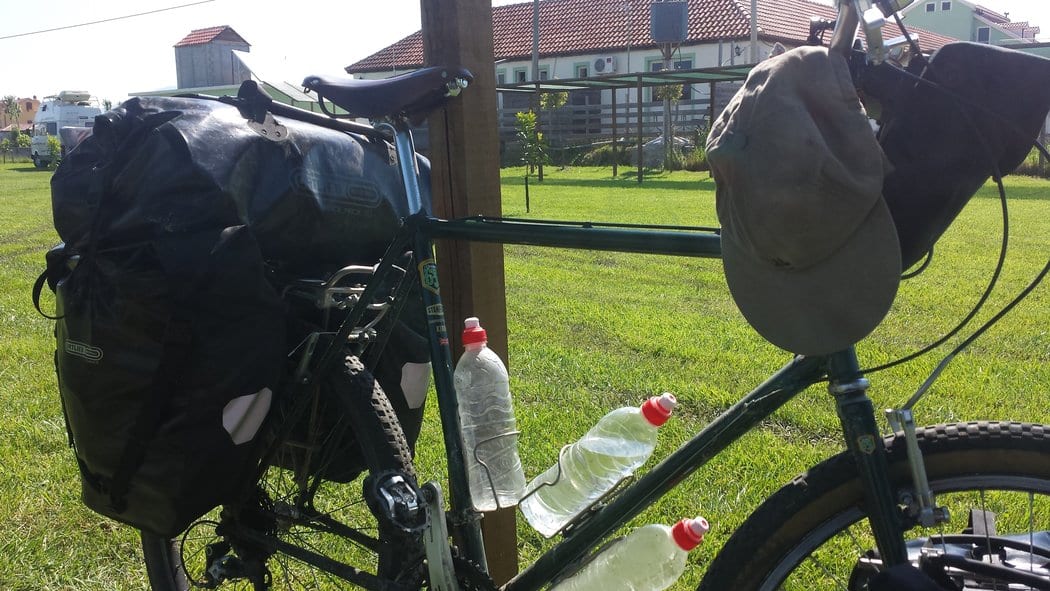
If you know you'll be setting up a wild camp near a water supply though, perhaps you don't have to physically carry so much. You will need a filter though.
Water Filter for Camping
Carrying a water filter will add to your weight, but will make life easier when it comes to ensuring you have clean drinking water.
There's a few different types of water filter available, with the Sawyer being one of the most popular. I use a couple of different types of water filter when I camp wild bike touring, depending on the type of trip I'm on.
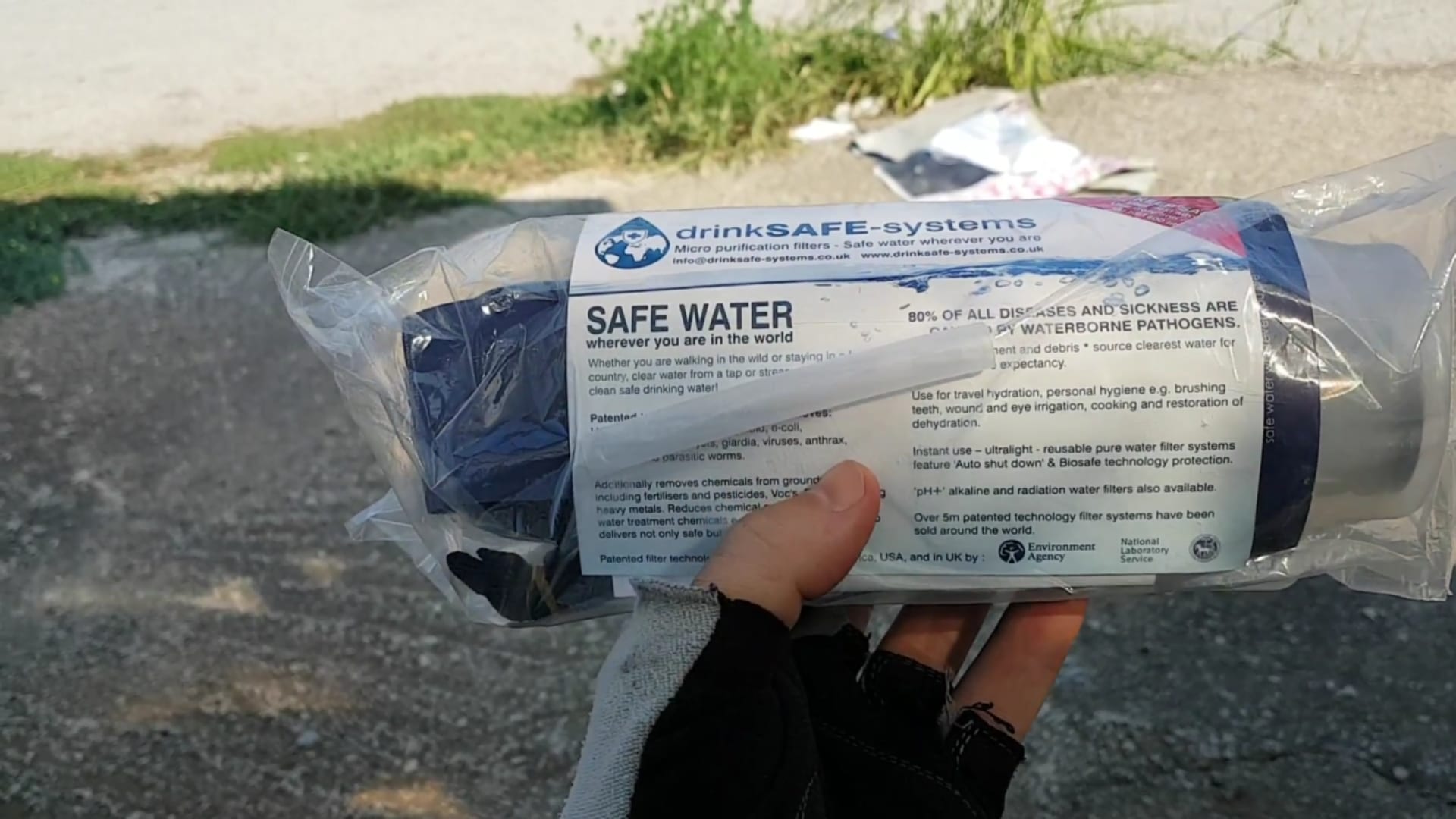
The most recent one I tried out was the Drinksafe Travel Tap. This is an all in one water bottle with filter. You can read my review here: Water filter for bike touring.
Don't want to pack too much stuff or concerned about weight? Take some purification tablets instead, but you probably won't want to use them longer than a day or two.
Food for Wild Camping
Fueling back up at night and again in the morning is something else to consider. Any food taken is best to be lightweight and easy to prepare. What you take will also determine if you need a cooking stove or not.
For overnight camping, dehydrated food might be an option. For much longer trips ‘real food' is far more preferable!
Coming from a bicycle touring background, I tend to carry the same types of staples with me all the time that I cook on a stove. These are rice, pasta, tuna, oats. Combining these with fresh veg and other ingredients I pick up when I can means I can cook up a tasty one pot meal.
In situations where I can't cook on a stove, I tend to have oat bars, peanut butter, canned fish, and flat or hard breads.
More here: Best food for bike touring.
Camping Stove and Cook Kit
If you decide to take a stove as one of your main wild camping essentials, there's other considerations as well such as cooking kit, utensils, and fuel.
Related: Bicycle Touring Cooking Gear
There's also the consideration of how to use it while not drawing attention to your camping spot to keep in mind.
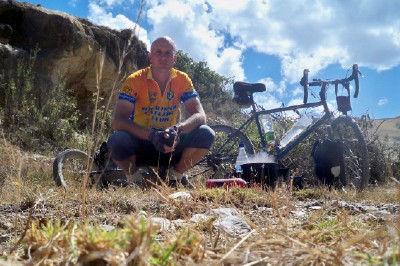
For simple overnight camping trips in the wild, the tried and tested CampingGaz backpacking twister stove might suffice. My cooking equipment tends to consist of an MSR WhisperLite camping stove, one pot, and all in one fork.
More here: Best camping stoves for bike touring.
Poo Shovel / Bag
Not exactly the most glamorous item on your wild camping kit list, but if you need to go, so to speak, you'll need a poo shovel. The alternative is a poo bag, which you probably don't want to be messing around with your first time free camping!
Useful Extras
After that, it all comes down to creature comforts and things that make life easier when camping. Consider a power bank for your mobile phone, headtorch, binoculars for star gazing, wash kit and toothbrush, sponge, toilet paper, and the list goes on!
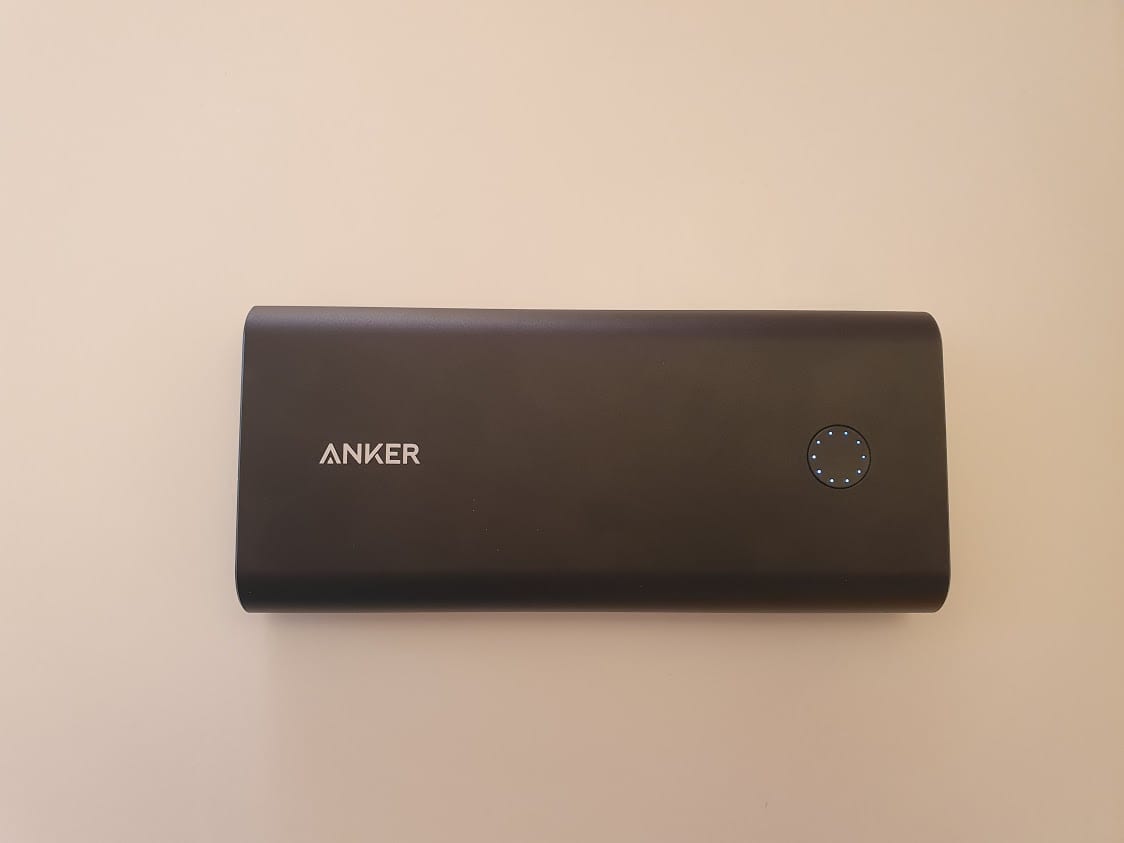
Carrying your Camping Gear
It goes without saying that you're going to need to find a way to carry all your camping gear essentials!
Personally, I normally have my equipment for wild camping on a bike as long distance bicycle touring is my thing. Others might carry a backpack, and others still may simply throw their camping kit into the boot of a car.
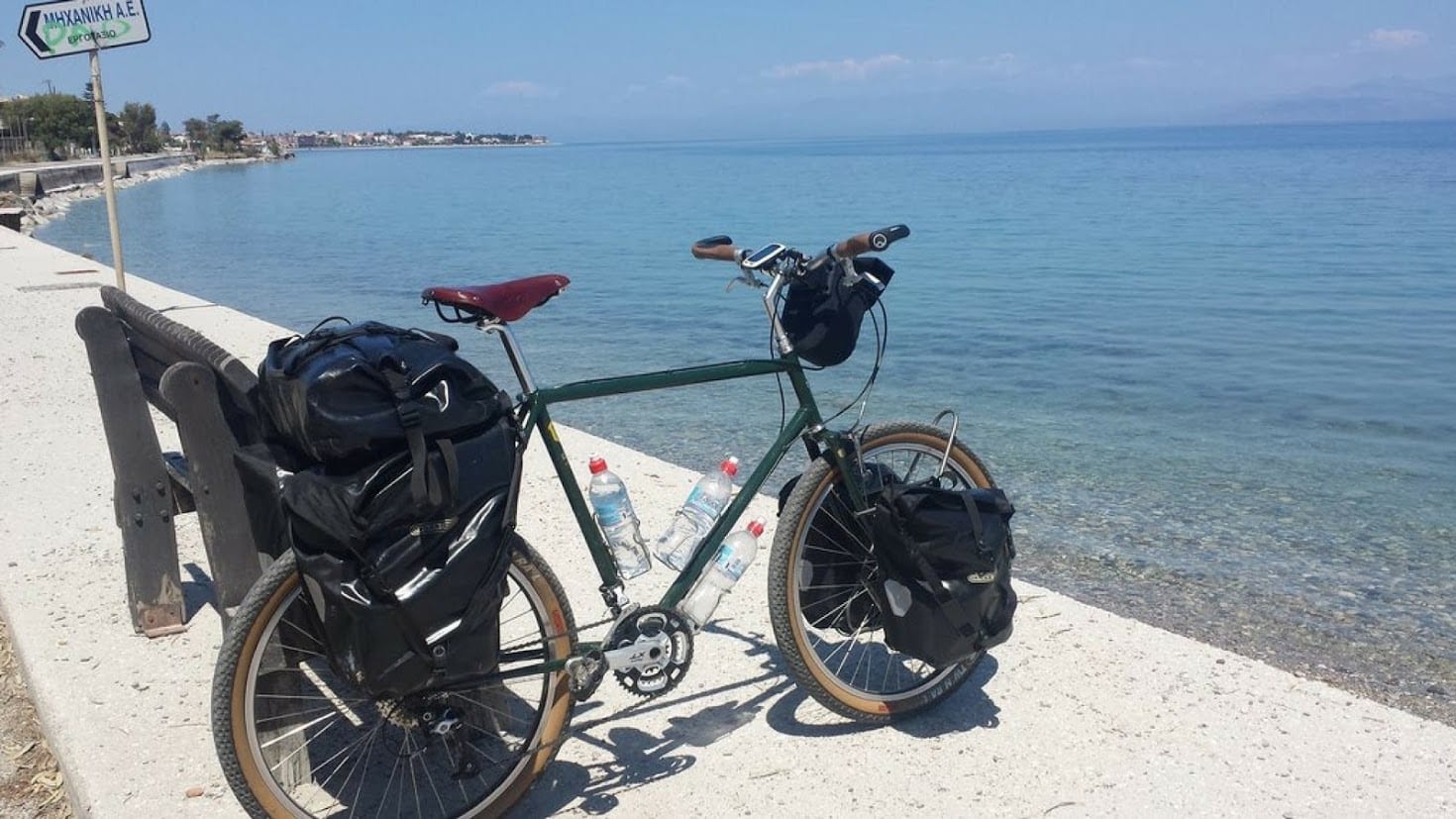
There's no point in me going into great about how to carry your wild camping gear. My only advice would be to keep things light (especially if you are carrying it!), and have a way to keep what's inside your bags dry if it rains.
This normally means rain covers if you are packing a rucksack, and waterproof panniers for bike touring such as Ortlieb Panniers.
Wild Camping Tips
And the final wild camping essential you'll need is good etiquette! A few golden rules to keep in mind include:
- Leave the area as you found it
- Take away any trash with you (including any you find!)
- Pitch late, leave early
- Don't stay for more than one night
- No campfires

Share these wild camping trip essentials
If you use pinterest boards to collect posts on outdoor activities, please pin this wild camping equipment list for later. That way, you'll be able to easily find it again in the future.
Have a great time, and let me know how your first night went!

What equipment do you need for wild camping?
If you're wondering what to take wild camping, you should start at the basics such as what type of sleeping system you want to use. A good sleeping bag and sleeping mat should be at the core of your wild camping gear.
What do wild campers sleep in?
Wild campers typically sleep in either tents, hammocks or bivys. Most people choose to use a tent for wild camping as it is more versatile in different types of terrain and weather.
What type of food should I take when I'm wild camping?
When choosing the food you want to take on your wild camping adventure, there are a few things to think about such as weight, preparation and freshness. If you are taking a portable stove like an MSR WhisperLite or a small alcohol burner such as the Trangia which is useful for wild camping, consider rice, pasta, noodles, or freeze dried meals.
Where should I go wild camping?
Before heading out into the wilderness, it's a good idea to check the weather and plan your route. If you are camping without access to natural water, then plan your route so that you have natural water nearby in case of emergency.
Where should I put my tent up?
Once you've found a place that ticks all of your boxes, consider where you want to put your tent up. For obvious reasons (getting caught in bad weather), it's best to find a location which is as sheltered as possible. Most importantly when wild camping, you want to be out of view of any potential passers-by.
In conclusion…
Wild camping is a special experience that has the potential to be life-changing. If you're new to wild camping, this article will provide some practical advice and tips for making your first wild camp as comfortable as possible. We've also provided information about how to carry all your gear so it's light enough without sacrificing quality or safety. Finally, we encourage our readers to leave no trace when they use their campsite and pitch late/leave early!
Do you use any items you consider essential to add to a wild camping packing list? Let us know by leaving a comment below!
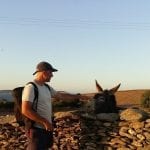 – Dave Briggs
– Dave BriggsDave is a travel writer who has spent several years living in tents during his various cycle trips around the world. If you enjoyed reading this travel guide about what gear to take wild camping, check out some of his other travel guides, tips, and experiences. Follow Dave on social media for travel inspiration: